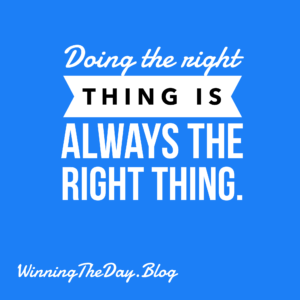We’ve all been there. You’re at a conference, listening to a top coach, and you have that “aha!” moment. You think, “That’s it! I know exactly what I need to do to take my business to the next level.” You feel energized, you take notes, and you leave with a clear plan.
But then… life happens. The calls come in, the clients need you, and that perfectly crafted plan gets buried under the day-to-day chaos.
This isn’t just about a lack of discipline. For high-performing agents, brokers, and recruiters, it’s often a different kind of challenge. You’re already successful, so the immediate pressure to change isn’t there. You’re busy, and the “little things” feel insignificant compared to the big deals you’re closing.
The ‘Why’ Behind the ‘Don’t Do It’
So, why do we know we should do something but still don’t do it?
- The “Busy-ness” Trap: You’re constantly in motion, prioritizing revenue-generating activities. Tracking expenses or mileage feels like a chore, a non-income-producing task. It’s easy to rationalize it by saying, “My time is better spent on closing a deal.”
- The Overwhelm of Small Tasks: When you’re dealing with six-figure commissions, the idea of saving a few hundred or a few thousand dollars on taxes seems like a minor detail. The mental energy required to track every receipt feels disproportionate to the perceived reward.
- The ‘I’ll Do It Later’ Syndrome: This is a classic procrastination loop. The intention is there, but it’s always pushed off until “the end of the week” or “the end of the month,” which rarely comes. This leads to a mad scramble at tax time, often resulting in missed deductions.
The High Cost of Inaction
Ignoring these “small” things comes with a high price.
- Financial Impact: Let’s say you drive 10,000 business miles a year. At the current IRS rate, that’s a significant deduction you’re leaving on the table. And what about those business lunches, marketing materials, or staging expenses? A few hundred dollars here and there can quickly add up to thousands in lost savings. This isn’t just about saving money; it’s about retaining more of the money you’ve already earned.
- Missed Opportunities for Business Insight: When you don’t track your expenses, you lose visibility into your business. You don’t know your true cost of sale, your most effective marketing channels, or where you might be overspending. This data is critical for making strategic decisions to scale your business.
- Mental & Emotional Toll: Procrastination leads to stress and anxiety, especially as tax season approaches. The person who tracks their expenses regularly has peace of mind. The one who doesn’t faces a mountain of work and the fear of an audit.
Simple Solutions for the High Performer
The good news is, these challenges are fixable. Here are a few simple solutions:
- Leverage Technology: There are countless apps designed for real estate professionals—Expensify, MileIQ, or simple accounting software like QuickBooks Self-Employed. These tools automate the process, so you’re not manually logging everything. A quick scan of a receipt or a tap on your phone is all it takes.
- Create a Simple Routine: The goal is to make it a habit, not a chore. Schedule 10 minutes every Friday to input your expenses for the week. Or, even better, do it on the spot. Take a picture of the receipt the moment you get it. This “micro-action” approach prevents the mountain from ever building.
- Reframe the Task: Don’t think of it as “tracking expenses.” Think of it as securing your profits or investing in your business’s financial health. It’s not a chore; it’s a strategic move.
The gap between knowing and doing is where the true difference lies. It’s not the secret strategy that will propel you forward; it’s the consistent application of the fundamentals. The most successful professionals aren’t just the ones who know what to do—they’re the ones who do it.
What’s one small thing you can start doing today to bridge that gap?

Hey Mark, thanks for the post! I definitely resonate with what you’ve mentioned here, and how easily we fall into the trap of “busyness”, “small tasks”, and “do it later”, which I can all relate to. Similar to what you’ve mentioned, I think many people, including me, have a tendency to think in shorter-term based on what’s been taught in our work cultures, and could perhaps benefit from a “think, then do” mentality that first assesses the impact of actions on our business (and ourself), rather than falling into the impulse of “immediate” work.